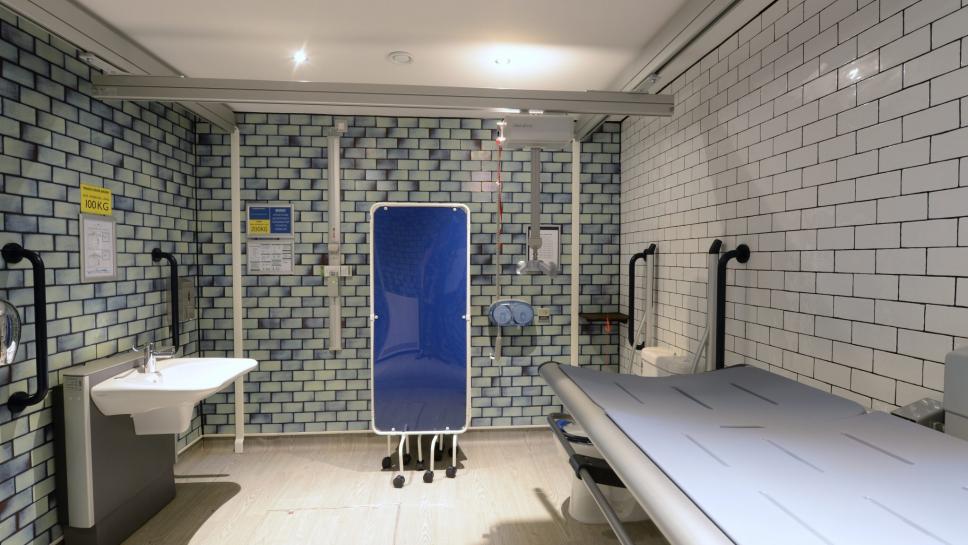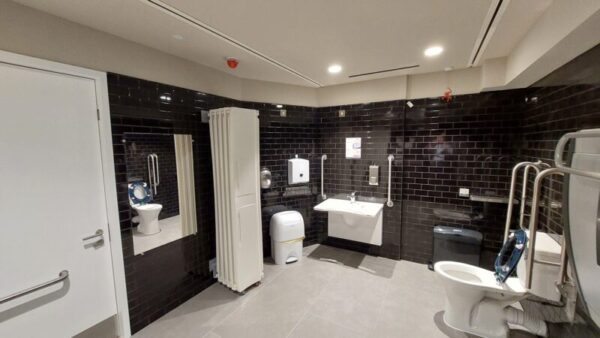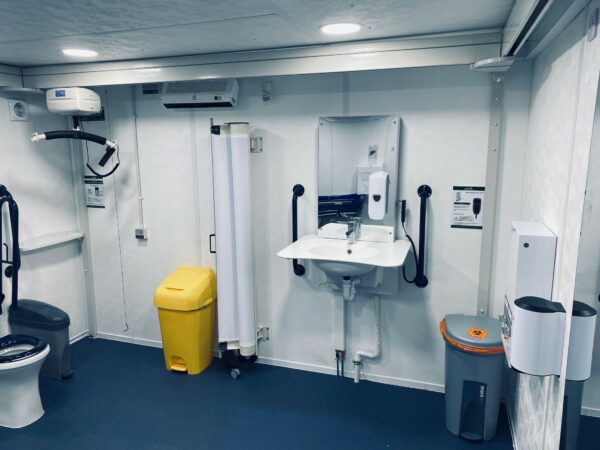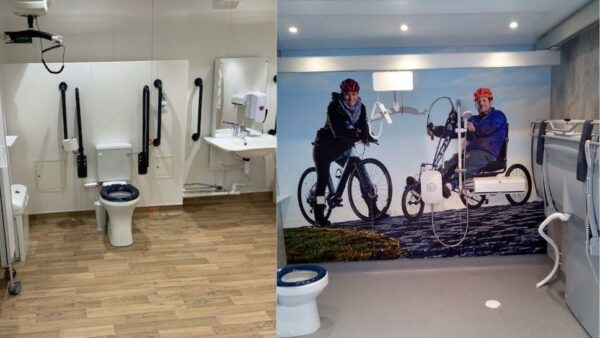Disabled people and their families are being excluded from things as simple as shopping because some of the UK’s largest supermarkets and retailers do not have a fully-accessible Changing Places toilet.
Most supermarket chains aren’t providing enough fully-accessible toilets for disabled customers

Changing Places are needed by a quarter of a million disabled people in the UK, for whom standard accessible toilets are not suitable. But Muscular Dystrophy UK’s research into provision at supermarkets shows that Waitrose, M&S, Aldi, Lidl, Iceland and Co-op do not have a single registered facility.
Tesco, which partnered with Muscular Dystrophy UK earlier this year to roll out facilities at stores where there is the greatest need, is leading the way with 48 registered facilities and more due to be installed later this year and in 2020. Asda has registered seven, Sainsbury’s three, and Morrisons one.
Clare Lucas, Head of Policy and Campaigns at Muscular Dystrophy UK, said:
“Everyone should have the option of enjoying a bit of Christmas shopping or popping to their local supermarket to buy those festive essentials. But because there aren’t enough Changing Places, a quarter of a million people who need these toilets won’t be able to.”
Muscular Dystrophy UK, which co-chairs the Changing Places Consortium, has also found that:
- Less than 0.1% of retailers have a fully-accessible Changing Places toilet. There are currently 80 registered Changing Places toilets in supermarkets and other shops across the UK
- Some of the UK’s best-known shopping areas don’t have a registered facility. The nearest to the world-famous Oxford Street, for example, is at Great Ormond Street Hospital, nearly two miles away
- 40% of the top 50 ranked shopping centres in the UK[1] do not have a registered Changing Places toilet. There are 92 Changing Places toilets in total
- Some counties, including Bedfordshire and Lincolnshire, do not have a single registered Changing Places toilet in a shopping centre or shop. There are also no Changing Places toilets in any Greater London retailers
Clare added: “We need retailers to commit to installing these much-needed Changing Places to help tackle the exclusion disabled people face, not just at Christmas but all year round.”
Kerry Thompson, 40, from Milton Keynes, worked with Tesco on its project to install Changing Places toilets. She said:
“I’ve been on days out where I’ve just had one or two sips of water all day because there haven’t been any Changing Places toilets. Standard accessible toilets just aren’t good enough. When you have a powerchair, or two carers with you, only a Changing Places will do.”
Jo Elgarf’s five-year-old daughter Nora has a rare brain condition called polymicrogyria and needs Changing Places toilets. Jo, from Worcester Park, London, has two other children – Nora’s twin, Layla, and Youssef, seven – and said:
“Changing Places toilets mean we can enjoy a day out as a family. If there are no Changing Places, it’s not just Nora who is affected – her brother and sister are, too.
“Changing Places toilets in supermarkets and other large public venues should be the norm. They allow families to do things that other people may take for granted. For us, it means we’re able to make the 400-mile round trip to Cornwall to visit Nora’s grandmother, because there is now a Changing Places toilet in a Tesco store on the way.”
Alessandra Bellini, Tesco Chief Customer Officer, said:
“It’s clear how important Changing Places toilets are to our customers who need them so we’re pleased to have installed 48 new facilities already. We treat each store on a case-by-case basis and wherever possible we will try to accommodate them. We are pleased to announce that will be creating dozens more in 2020.”



